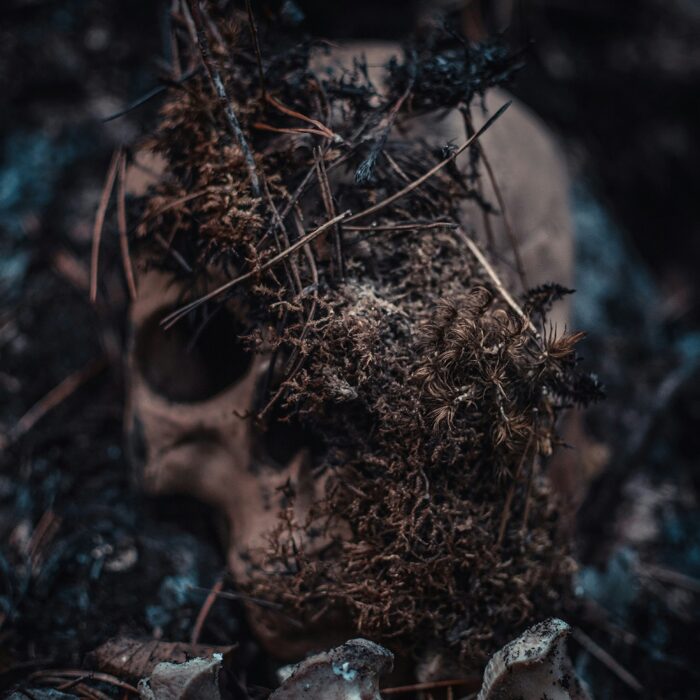You have no items in your cart. Want to get some nice things?
Go shopping
One night a towering monster with eyes of coal and claws of jet black rock and skin like the stony ground itself stumbles into a village. The people panic, scream, flee into the hills. Some of the younger men fetch pikes and sticks and surround him. Some of the older ones expire as their hearts give out. Children cry plaintively.
The monster could very easily kill them all. Crush the houses and uproot the trees. Pick his teeth with the spire of the church the villagers labored for ten years to build.
But he doesn’t.
He is a tired monster. He’s lived a thousand years and eaten ten thousand squealing humans in that time. He’s erased more villages than he can count or remember. The screaming no longer excites him. The destruction no longer fills his heart with fire. He wants something else. Something other.
And so he picks his way to the center of the village and settles there on the green. For a while there is commotion all around him. Men bearing pathetic weapons encircle him: bread knives and walking sticks and masonry hammers. Their eyes and hearts and bodies quiver with terror. With a single sweep of his hand the monster could turn them all into bloody smears on the grass.
But he doesn’t.
Instead he sits there, quite immobile, and waits. Days, then weeks. Slowly, the panic quietens. Villagers return from the woods into which they fled. They bury the dead. They light fires around the green and watch him warily. They chatter.
The younger men, he can tell, would like to smear him with pitch and shoot him with burning arrows. The older men would like to pack up and abandon the village altogether. In the end, a middle road prevails. Months after he first arrives in the village, the villagers start to bring him offerings.
Tiny garlands of tiny flowers. Huge meals that wouldn’t sate him for a second, even if he were to eat them. Scrappy little collections of gold and silver. They pile their worthless gifts around him like an enchanted circle, as though that will somehow protect them. He sits as still as a statue and watches them. He considers, again, killing each and every one of them.
But he doesn’t.
Slowly, slowly, the panic recedes. Six months pass and he doesn’t move an inch. The villagers come to regard him as benign. A few still eye him warily, but the rest forget their fear and panic. The weekly market begins again, the pens and stalls erected in a circle around him. People decorate him with flowers and cut grasses. On summer days they sit in his shadow.
The monster watches them. The comings and goings of their daily lives. The baker’s apprentice starts courting the dressmaker, and they visit the monster and touch his toes for luck. A year later they have their wedding on the green, and drunken guests lounge against the monster’s stony skin. The baker’s apprentice (now the baker) credits the monster with the flourishing of their love in his speech. The monster, he says, is a miracle. A blessing on the village.
And so it seems to be. After that visitors start coming to marvel at the monster. A few at first, and then many more. The village swells to accommodate them. There are new inns, new taverns, new houses. The shops around the green thrive. Offerings pile up around the monster in a glittering barrow. A sign is erected, explaining his miraculous nature.
Years pass, and the monster does not move. It is different from his previous existence. No death. No destruction. No bloodtaste in his mouth. No screams in his ears. Just peaceful years passing by one after the other after the other. The monster considers this existence no better and no worse than his previous life. He does not care for the villagers. Humans are so small and so insignificant they are of no interest at all to him. This life is not better or worse. It simply is.
He could, he supposes, stay and be their miracle forever. He could let them prosper. He could keep them. Watch over them. While away his years like this, in peace and harmony and quiet.
But he doesn’t.

About Krishan Coupland
Krishan Coupland lives in Norwich, and studies Creative Writing at the University of East Anglia. His writing has appeared in Voiceworks, Aesthetica, Ambit and Fractured West. He won the Manchester Fiction Prize in 2011, and in his spare time he edits a literary magazine. More of his work can be found at www.krishancoupland.co.uk.




